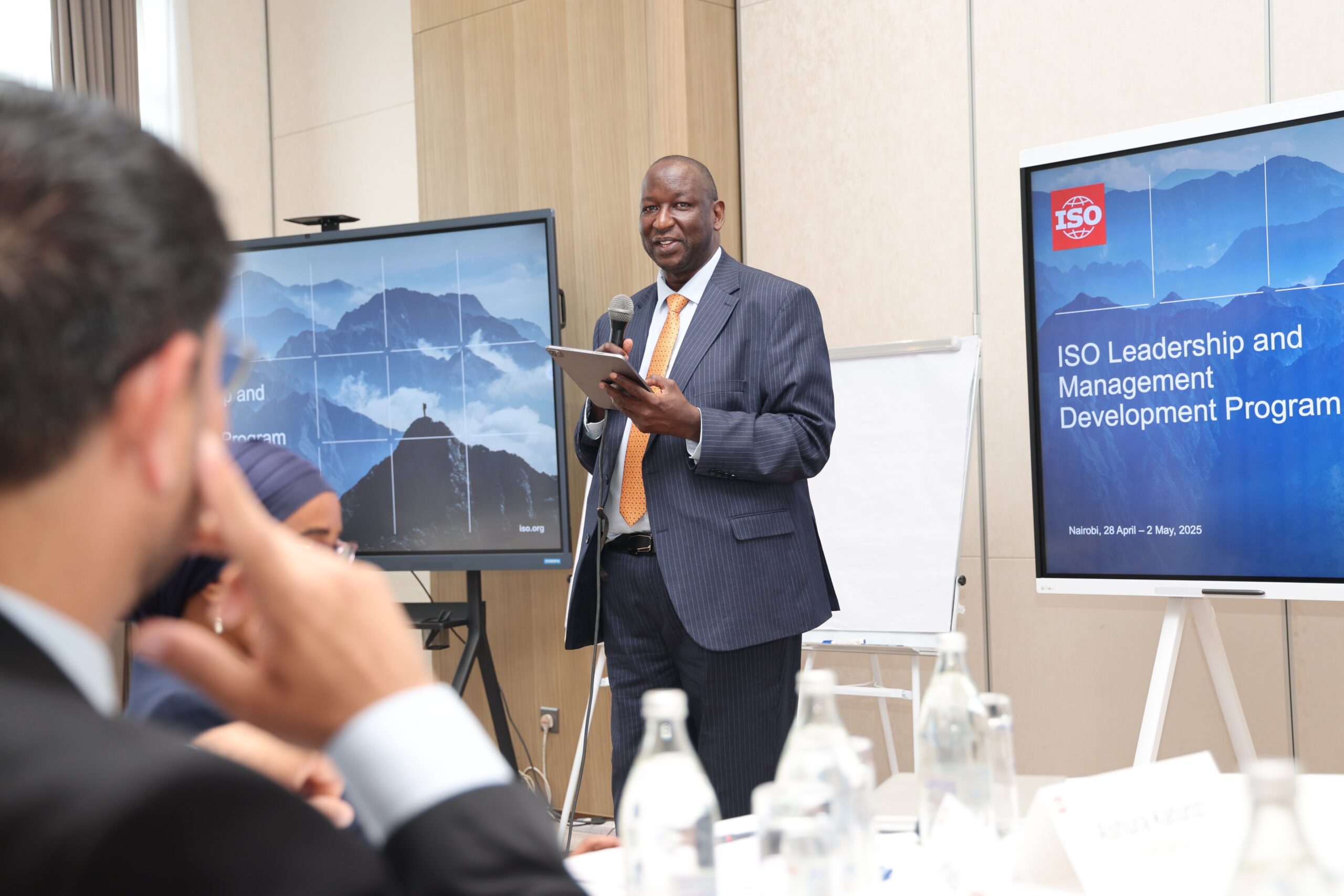Kenya is hosting the 9th Leadership and Management Development (LMD) Workshop this week, organized by the International Organization for Standardization (ISO).
The event has brought together CEOs, directors, and senior leaders from national standards bodies around the world to focus on developing strategic leadership skills suited to the challenges of modern economies.
Representing the Managing Director of the Kenya Bureau of Standards (KEBS), Dr. Henry Rotich, Director of Metrology & Testing, officially opened the session, emphasizing that impactful leadership today calls for more than technical excellence.
“It requires strategic vision, emotional intelligence, and adaptive thinking the very skills that reinforce trust in trade, safety in products, and fairness in services,” he noted.
Dr. Rotich underlined that the decisions leaders make in their boardrooms ripple across industries, economies, and communities, making leadership development critical to sustaining the future of standards and innovation.
“By strengthening ourselves intellectually, we empower our institutions, and stronger institutions underpin the smart systems that millions rely on for quality, safety, and confidence,” Dr. Rotich added.
He thanked ISO for its longstanding leadership in capacity-building across regions, including the Americas, the Caribbean, Africa, Europe, and most recently Asia, and celebrated Kenya’s pride in hosting this important milestone.
Erick Kieck, Director of Capacity Building at ISO, emphasized ISO’s deep commitment to leadership development, particularly among members from developing countries.
“It is essential for us to invest in growing the leadership competencies of our members. They are the ones helping us navigate the complexities and challenges facing global standardization today,” Kieck remarked.
He noted that three-quarters of ISO’s 175 members come from the developing world, underscoring the need for inclusive approaches to resilience and innovation.
Zakaria Lukorito, Director of Standards Development and Trade at KEBS, highlighted the importance of Kenya actively participating in shaping the future of standardization.
“This program gives us a valuable opportunity to both learn and contribute. We are taking full advantage to strengthen leadership within our institutions and to share our experiences at regional and international levels,” he said.
Over the coming days, delegates will explore strategic governance, institutional resilience, innovation leadership, and emerging technology trends, including the fast-evolving impact of Artificial Intelligence (AI) on global trade and standards development.
Further, Dr. Rotich urged participants to approach the workshop with curiosity and courage.
By Fred Azelwa.
